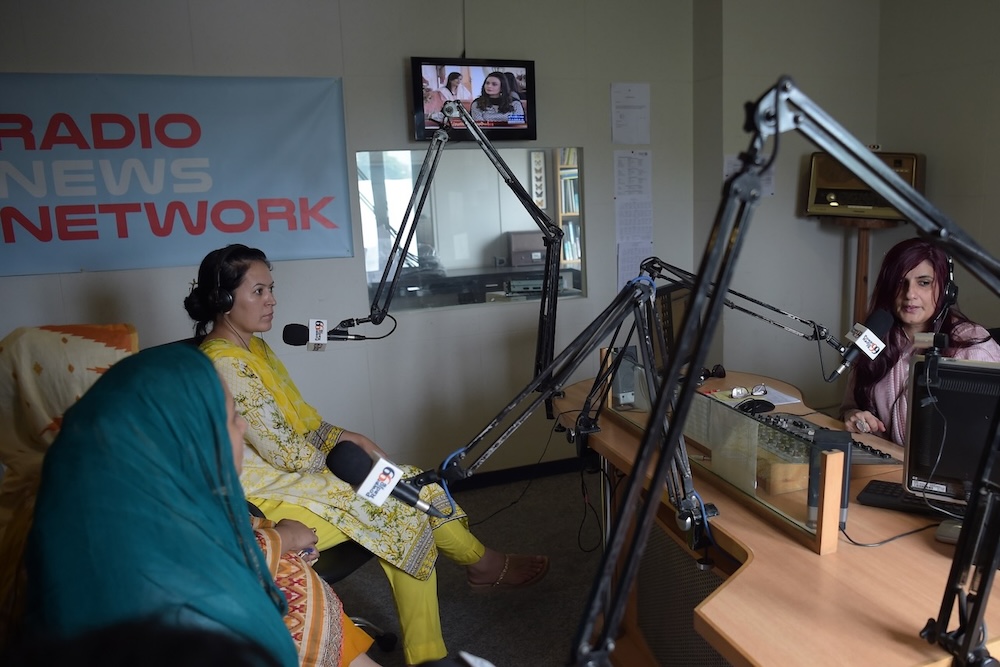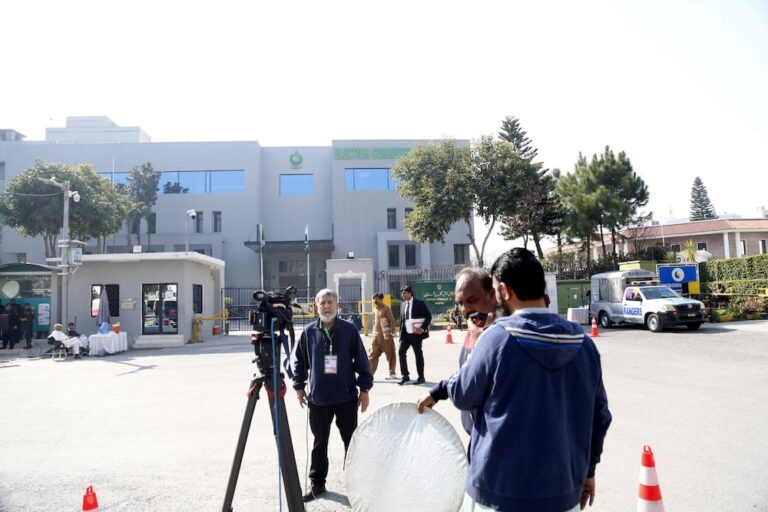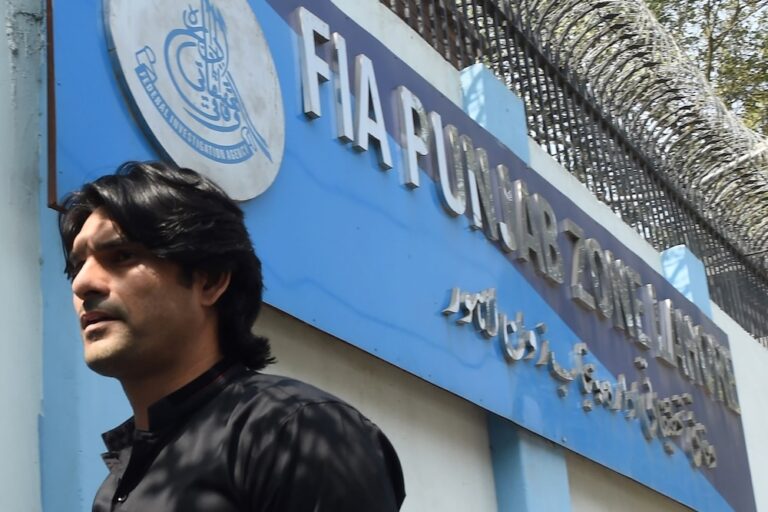The partners of the Sahafi Summit aim to create a journalism ecosystem rooted in education, innovation, and integrity.
This statement was originally published on mediamatters.pk on 16 December 2024.
As part of a shared vision to collectively shape the future of journalism in Pakistan, the partners of the Sahafi Summit 2024 aim to foster freedoms, education, innovation, and trust in the media landscape. At the heart of the Sahafi Summit 2024 lies a spirit of mutual support and collaboration, where stakeholders come together to amplify each other’s voices and contributions. By embracing diverse perspectives and fostering collective strength, we aim to address shared challenges and create meaningful opportunities for growth in journalism and media.
Keeping media students at the centre of our collective efforts, we seek to develop accessible platforms that engage them with existing policies and practices related to laws impacting media and journalism. This statement represents a shared commitment by the organisers of the Sahafi Summit—Media Matters for Democracy (MMfD), the Association of Media and Communication Academic Professionals (AMCAP), the School of Media and Mass Communications at Beaconhouse National University (BNU), and members of the Steering Committee of the Summit—to work together. Together, we aim to:
- Create an Enabling Environment for Journalism in Pakistan by advancing freedom of expression both online and offline, advocate for meaningful internet access, and promote informed media consumption. Through collaborative initiatives, we aim to enhance information literacy as a vital tool to counter misinformation and disinformation, building public trust in journalism and strengthening the integrity of media institutions.
- Strengthen Collaboration Between Media, Practitioners, and Academia by fostering regular engagement among media professionals, educators, and students through strategically designed networking opportunities. These interactions will prioritise dialogue, innovation, and collective problem-solving, creating accessible platforms for knowledge sharing and collaboration to address challenges and explore opportunities in journalism and media education.
- Foster a Gender-Sensitive and Feminist Media Environment by working together to promote understanding and advocacy for feminist and inclusive practices within the media industry. Work collectively to create an environment that values diversity, challenges stereotypes, and ensures equitable representation and opportunities for all genders in journalism and media.
- Engage in Collective Advocacy and work with the Higher Education Commission (HEC) to incorporate journalism-related policies and contemporary practices into academic curricula, including flexible criteria to enable the inclusion of media practitioners within faculty and adjunct roles. Simultaneously, collaborate with media owners to establish processes encouraging the active involvement of practitioners in academic settings, fostering experiential learning and bridging the gap between theory and practice.
- Bridge academia and industry for journalistic and academic excellence to establish adjunct teaching roles for media practitioners and create opportunities for academics to gain practical experience in media organisations. We aim to advocate together for the formation of industry advisory boards at faculty levels to align curricula with professional standards. Develop exchange programmes for educators and practitioners to promote mutual learning and upskilling. Introduce co-teaching models that integrate academic expertise with industry insights, and form partnerships to leverage academic research to inform and enhance media strategies, ensuring a seamless connection between theory and practice.
- Promote Skills based and practical training – Establish university spaces and studios dedicated to practical production, prioritising hands-on learning models that prepare students for real-world challenges. Facilitate opportunities for students to participate in investigative journalism projects, supported by placements designed to deliver tangible impact.
By focusing on these areas of action, the partners of the Sahafi Summit aim to create a journalism ecosystem rooted in education, innovation, and integrity. These efforts will empower future journalists, strengthen the relationship between academia and industry, and promote an environment of trust essential for the growth of independent and impactful journalism. To ensure the sustainability of these initiatives, we will mobilise resources and foster a culture where efforts in journalism education and practice are recognised and celebrated.
This collaborative agenda sets the stage for sustainable partnerships that will contribute to the evolution of media education and practice in Pakistan. We look forward to continued dialogue, action, and shared successes in the years to come.



